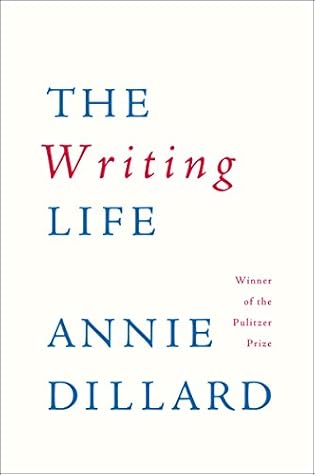More on this book
Community
Kindle Notes & Highlights
It takes years to write a book—between two and ten years. Less is so rare as to be statistically insignificant.
Faulkner wrote As I Lay Dying in six weeks; he claimed he knocked it off in his spare time from a twelve-hour-a-day job performing manual labor.
Out of a human population on earth of four and a half billion, perhaps twenty people can write a serious book in a year.
At a page a day, he was one of the most prolific literary writers who ever lived.
cannot imagine a sorrier pursuit than struggling for years to write a book that attempts to appeal to people who do not read in the first place.
The study—sold as a prefabricated toolshed—is eight feet by ten feet. Like a plane’s cockpit, it is crammed bulkhead to bulkhead with high-tech equipment. All it needs is an altimeter; I never quite know where I am. There is a computer, a printer, and a photocopying machine. My backless chair, a prie-dieu on which I kneel, slides under the desk; I give it a little kick when I leave. There is an air conditioner, a heater, and an electric kettle. There is a low-tech bookshelf, a shelf of gull and whale bones, and a bed. Under the bed I stow paints—a one-pint can of yellow to touch up the
...more
walk up here from the house every morning.
I had a room—a study carrel—in the Hollins College library,
How we spend our days is, of course, how we spend our lives. What we do with this hour, and that one, is what we are doing. A schedule defends from chaos and whim.
It is a net for catching days. It is a scaffolding on which a worker can stand and labor with both hands at sections of time. A schedule is a mock-up of reason and order
it is a peace and a haven set into the ...
This highlight has been truncated due to consecutive passage length restrictions.
When the Danish aristocrat Wilhelm Dinesen shot birds all day, drank schnapps, napped, and dressed for dinner, he and his wife had three children under three. The middle one was Karen.)
Nietzsche, like Emerson, took two long walks a day.
Jack London claimed to write twenty hours a day. Before he undertook to write, he obtained the University of California course list and all the syllabi; he spent a year reading the textbooks in philosophy and literature. In subsequent years, once he had a book of his own under way, he set his alarm to wake him after four hours’ sleep.
During some of the long, empty months at work on the book, I was living in a one-room log cabin on an empty beach.
There was a tiny range within which coffee was effective, short of which it was useless, and beyond which, fatal.
Many fine people were out there living, people whose consciences permitted them to sleep at night despite their not having written a decent sentence that day, or ever.
do not so much write a book as sit up with it, as with a dying friend. During visiting hours, I enter its room with dread and sympathy for its many disorders. I hold its hand and hope it will get better.
said that actually I avoided writing, and mostly what I did by way of work was fool around,
Write as if you were dying. At the same time, assume you write for an audience consisting solely of terminal patients. That is, after all, the case. What would you begin writing if you knew you would die soon? What could you say to a dying person that would not enrage by its triviality?
He is careful of what he reads, for that is what he will write. He is careful of what he learns, because that is what he will know.
The caring suggested the tasks; the tasks suggested the schedules.
Why are we reading if not in hope that the writer will magnify and dramatize our days, will illuminate and inspire us with wisdom, courage, and the possibility of meaningfulness, and will press upon our minds the deepest mysteries, so we may feel again their majesty and power?
What do we ever know that is higher than that power which, from time to time, seizes our lives, and reveals us startlingly to ourselves as creatures set down here bewildered?
We should amass half dressed in long lines like tribesmen and shake gourds at each other, to wake up; instead we wa...
This highlight has been truncated due to consecutive passage length restrictions.
At its best, the sensation of writing is that of any unmerited grace. It is handed to you, but only if you look for it. You search, you break your heart, your back, your brain, and then—and only then—it is handed to you.
If it were a baseball, you would hit it out of the park. It is that one pitch in a thousand you see in slow motion; its wings beat slowly as a hawk’s.
Similarly, the impulse to keep to yourself what you have learned is not only shameful, it is destructive. Anything you do not give freely and abundantly becomes lost to you.


